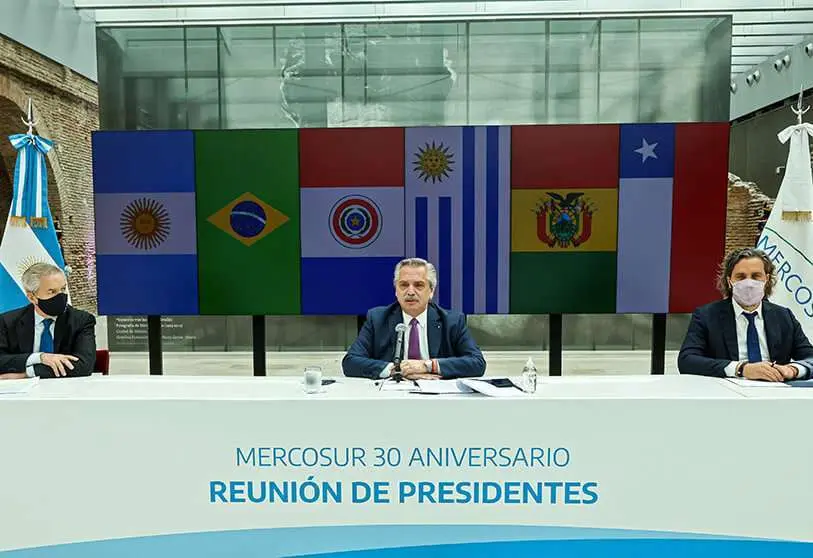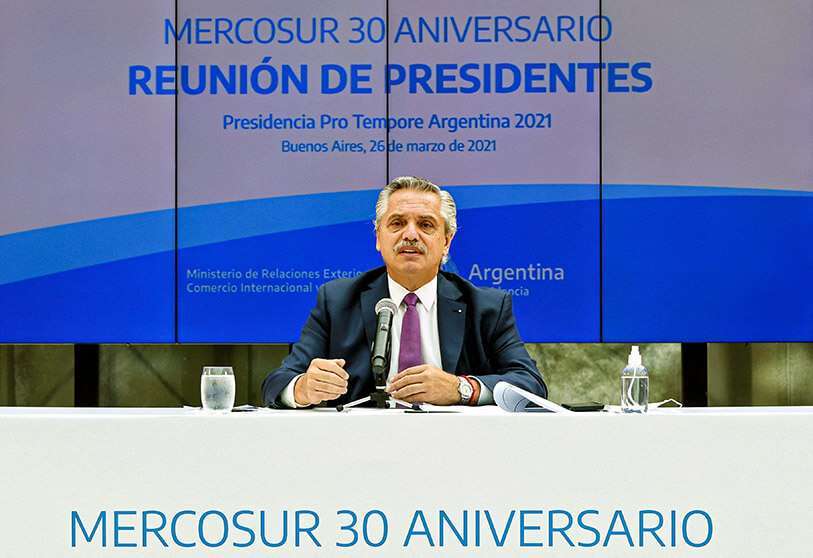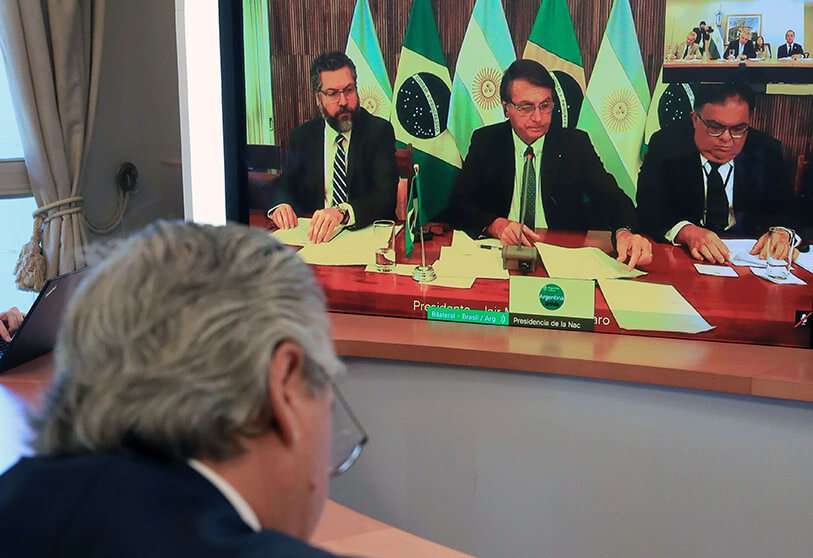Argentina's role in Mercosur

Since the signing of the Asunción Treaty, Argentina and Brazil have had a great deal of influence over the Southern Common Market (Mercosur). Alberto Fernández, Argentina's president, holds the presidency of the bloc, but does not have the support of the other countries on key issues such as making the organisation more flexible or lowering the common external tariff. On these issues, there is a rift between Argentina and the other three Mercosur member states: Brazil, Uruguay and Paraguay. We are at a tense moment in the region, where the economic and health situation is uncertain and the time to make decisions is pressing.
Under former Argentinean President Carlos Menem, the South American bloc was born in 1991. Its creation was inspired by the developmentalist thinking of the governments of José Sarney and Raúl Alfonsín in the 1980s. They sought to constitute a regional economic-political bloc in a new international scenario, in the midst of the neoliberal effervescence sponsored by the Washington Consensus. It was developed under the paradigm of "free trade" and so-called "open regionalism".

Governments such as Kirchner's denote the political change taking place in South American countries in opposition to the neoliberal globalisation promoted by Anglo-American power, focusing their foreign policy on strengthening relations with allied countries in the region and Mercosur. At this time, policies focused on social and anti-liberal policies were articulated, with the accent no longer placed on the economy, free trade and policies to attract capital, but rather on strategies for the accumulation of regional power, political and social integration and productive complementation.
With liberal presidencies in the region such as that of Mauricio Macri, a new turn has been made towards Mercosur's economic and trade dimension, with the conclusion of three agreements that regulate areas related to trade and investment, the digital agenda and e-commerce. Likewise, in contrast to Kirchner's regionalist policies, there is a globalisationist zeal, which seeks to increase trade with other strategic regions of the world, such as the push for a free trade agreement with the EU that has yet to be signed.
The term of office of Alberto Fernández, Argentina's president from 10 December 2019, has been marked by the pandemic. According to Press Release N°:406/20, he calls for "more and better Mercosur with a sustainable and inclusive economic recovery" as well as solidarity in the face of COVID-19. Being from the Peronist-oriented "Frente de Todos" party and with Cristina Fernández as vice-president, it is to be expected that Alberto Fernández's policies will follow in the Kirchners' footsteps.

The virtual summit of presidents celebrating the 30th anniversary of Mercosur once again revealed the differences in the bloc over proposals to make the agreement more flexible, a debate that has been going on for several governments. Former Uruguayan presidents Jorge Batlle, Tabaré Vázquez, José Mujica in 2012, and Vázquez again in 2015 when he travelled to Paraguay, put it on the table. In his speech at the Summit, Luis Lacalle Pou, President of Uruguay, highlighted the urgent need to revise the common external tariff, and stressed that Mercosur cannot be a burden, "a corset in which our country cannot move". For this reason, he called for the organisation to be made more flexible, as well as the possibility of negotiating at different speeds or "different rhythms", since "Uruguay needs to move forward".
At the end of the event, Fernández responded to the Uruguayan president, saying that consensus is necessary in order to move forward and regretted if anyone understood that it could have become "a burden". "The truth is that we did not want to be a burden for anyone. The easiest thing to do is to get off the boat if the burden is too heavy. Let's put an end to these ideas that do so little for unity. We don't want to be anyone's burden. If we are a ballast, let them take another boat, but we are nobody's ballast. For me it is an honour to be part of Mercosur", he concluded.

Mario Abdo Benítez, president of Paraguay, is also in favour of making the bloc's dynamics more flexible. During his presentation he said that "We cannot allow ideologies to contaminate this process, to divide us by our differences, we have to be an example as leaders of leaving a legacy of understanding". Jair Bolsonaro, President of Brazil, also made reference to the flexibilisation of the organisation, "The rule of consensus cannot be a tool of brake or permanent veto (...) We want speed and to concentrate our work on generating external investments that can generate work, employment and income", referring to the need to vote instead of moving forward through consensus.
It should not be forgotten that during the Argentinean elections in 2019 Bolsonaro publicly defended the re-election of Macri, Fernández's opponent, and predicted that
if the Peronist candidate were elected, there would be an exodus of Argentines to Brazil. Fernández responded by saying that she welcomed the fact that "a misogynist and violent man" was speaking ill of him. This enmity grew during the course of the pandemic due to the evident differences between the two presidents in dealing with it.
Faced with the possibility of reducing the common external tariff, Argentina is considering a selective reduction that would not affect key sectors such as automobiles or textiles. Brazil, with the support of Uruguay, insists on reducing all tariffs by ten percent this year and another ten percent next year. Argentina and Brazil are Mercosur's main partners, and if there is no understanding between the two presidents due to their personal and ideological differences, it is impossible to draw up a plan for the post-COVID world.
In a week, a new meeting of foreign ministers and economy ministers, scheduled for 8 June in Buenos Aires, Bolsonaro and Lacalle continue to make claims that distance them from the Argentine position, which will hold the pro tempore presidency of the bloc until July.
Latin America Coordinator: José Antonio Sierra










